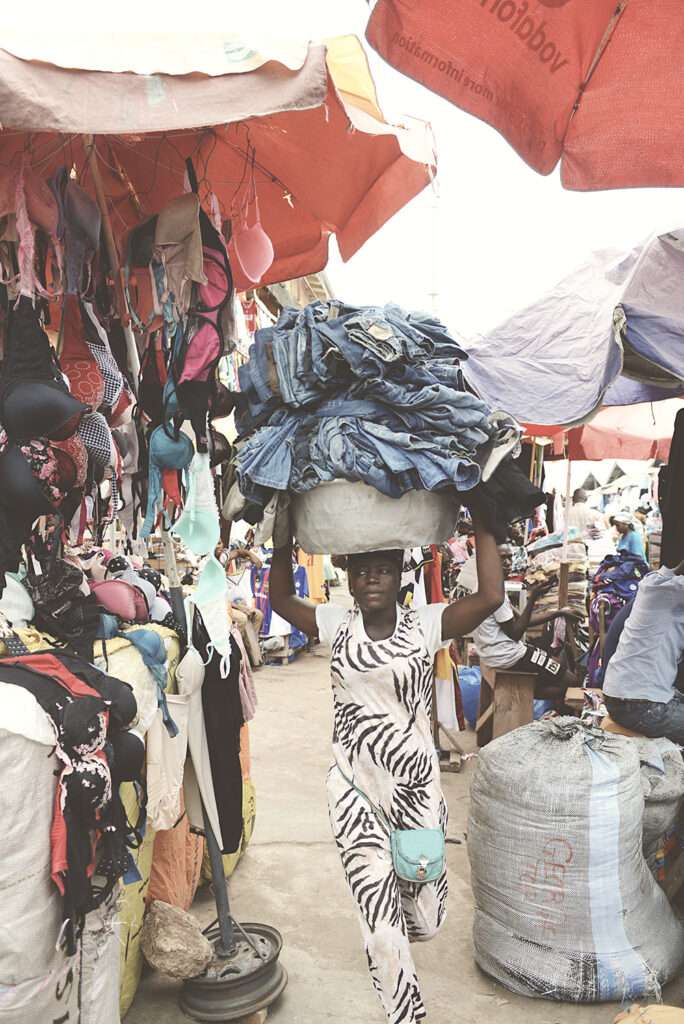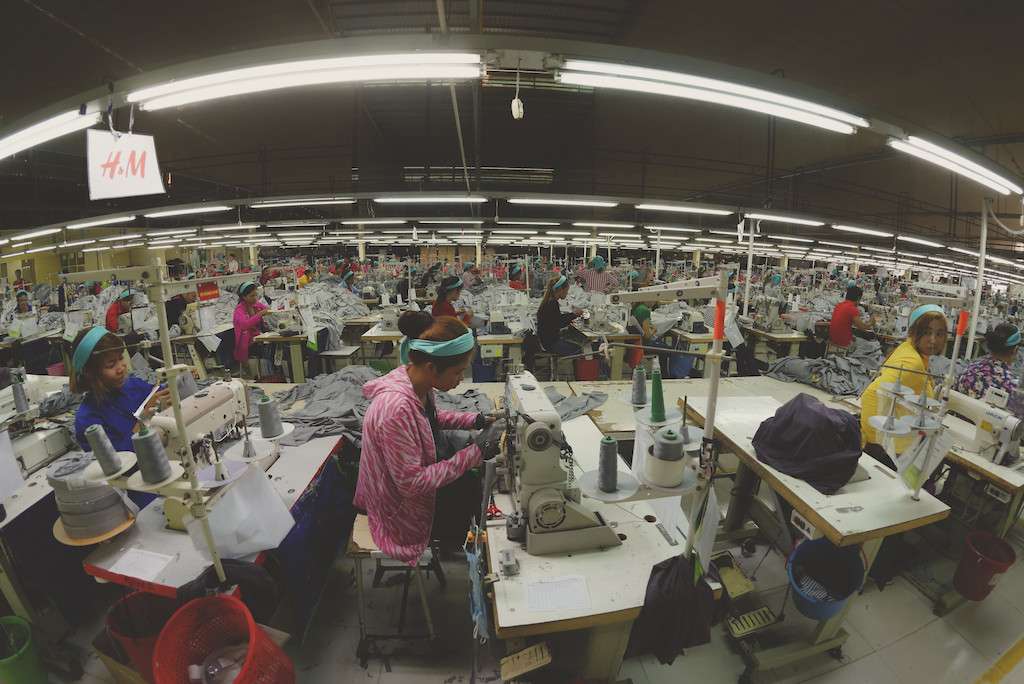France is proposing a ban on exporting used clothes to African countries as well as proposing surcharges on fast fashion to help consumers rethink their choices as the E.U. drowns in fast fashion.
France is spearheading a proposal to the European Union aiming to prohibit the export of used clothes. This initiative emerges as the E.U. seeks innovative solutions to the escalating issue of textile waste, which has seen exports of used textiles more than double since 2000, reaching 1.4 million metric tonnes in 2022. The discarded clothes, often ending up in African countries, contribute to pollution, as many items that cannot be resold wind up in landfills. France, alongside Sweden and Denmark, is pushing for this proposal to be a topic of discussion during the upcoming Environment Council meeting in Brussels on March 25.
The French environment ministry has expressed its concern over the “fast-fashion” industry, which thrives on a culture of excessive consumption, saying that African nations, which bear the brunt of used clothes exports, must no longer be “the dust bin of fast-fashion.” The environment ministry said France must instead reduce and manage its own waste.

Concurrently, a French lawmaker from the conservative Les Républicains party has introduced a draft bill aiming to curb the impact of fast and “ultra-fast-fashion” by imposing a €5 surcharge on every fast-fashion purchase. This proposed legislation targets not only environmental preservation and the promotion of the French textile industry but also addresses the negative implications of fast fashion, which has gained substantial traction in France. Critics argue that the bill unfairly targets the economically disadvantaged, limiting their access to affordable and fashionable clothing. Despite the backlash, the bill’s advocate, 31-year-old Antoine Vermorel-Marques, highlights the environmental and social repercussions of the fast-fashion industry through a satirical video, showcasing the harmful effects of chemicals used in such clothing. “The fast-fashion mentality is coming to an end,” Cécile Désaunay, director of studies at consultancy firm Futuribles, said in the video.
“Before, the norm was to have fewer clothes, but that lasted longer. We paid more for them, but we made them last,” Désaunay said. “Today, we’ve moved away from that mentality. We have clothes that are not as strong, that don’t last as long, and we’re getting used to always having more of them because they cost less.”
The surge of fast fashion, characterized by its rapid production and low-cost pricing, poses a significant threat to traditional fashion manufacturers in France, with brands like Shein adding up to 11,000 new items to their catalog daily. This industry model is under scrutiny for its environmental and ethical impacts, leading to a broader debate on consumption practices and the necessity for sustainable alternatives. The proposed bill aims to balance penalties for environmentally damaging purchases with incentives for sustainable shopping choices, employing a bonus-penalty system to encourage more responsible consumption behaviors.

“What is key here is that it’s not another tax,” Vermorel-Marques said. “We’re not here to take money from you. We’re just saying: ‘If you pollute, you pay. And if you don’t pollute, you win’. It’s a win-win for both the consumer and the planet.”
The fast-fashion model has been criticized for contributing to over-consumption, pollution, and exploitation within the fashion industry. Organizations like Friends of the Earth have pointed out the considerable carbon footprint and human rights violations associated with these practices. Shein, a prominent player in the fast-fashion sector, has been particularly noted for its substantial sales and the environmental and social concerns related to its business practices.
As the discussion on sustainable fashion gains momentum, the proposed legislation and France’s initiative to ban the export of used textiles represent critical steps toward addressing the complex challenges of textile waste and environmental sustainability. These efforts reflect a growing awareness and desire for change in consumption habits, emphasizing the importance of valuing quality, sustainability, and ethical practices in the fashion industry. Désaunay says secondhand and downstream markets are part of the solution, but they’re not a cure-all. “The challenge for the textile industry is that charities and other recycling centers are bursting at the seams with [used] clothes,” she said. “Given the amount of clothes already on this planet, we could still dress humanity for another 100 years even if we stopped making them.”
Related on Ethos:


